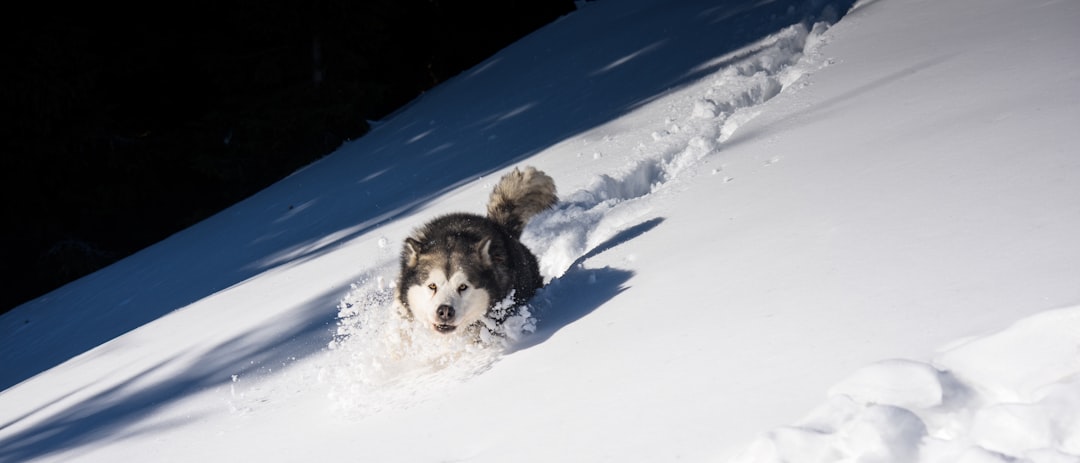- You are here:
- Home »
- Blog »
- Boston Dog Trainer »
- Proactive Paws: A Guide to Maintaining Optimal Health for Siberian Husky Dogs
Proactive Paws: A Guide to Maintaining Optimal Health for Siberian Husky Dogs
Proactive Paws: A Guide to Maintaining Optimal Health for Siberian Husky Dogs
A comprehensive guide to the health considerations and care required for Siberian Husky dogs, including common health issues, recommended diet and exercise, grooming requirements, and the importance of proactive care and regular monitoring.
Overview of Siberian Husky Health
Siberian Huskies have a rich history, having been brought to Nome, Alaska in 1908 by Russian fur trader William Goosak. These dogs are renowned for their talkative personalities and their need for mental stimulation, which is essential for keeping them engaged and happy. It’s important for owners to understand that these energetic and intelligent dogs require consistent training, socialization, and frequent small meals to maintain their health and well-being. For example, providing mental stimulation can involve activities like puzzle toys, obedience training, and interactive play sessions, all of which can help keep a Husky’s mind sharp and active.
To ensure the optimal health of Siberian Huskies, it’s crucial for owners to be aware of the common health issues that these dogs may face. These include cataracts, progressive retinal atrophy, corneal dystrophy, hypothyroidism, and hip dysplasia. For instance, hip dysplasia is a condition where the hip joint doesn’t develop properly, leading to mobility issues and discomfort for the dog. Understanding these health concerns can help owners be proactive in seeking appropriate veterinary care and taking preventive measures to support their Husky’s well-being [1, 2, 3, 4].
Understanding Husky Health and Characteristics
Siberian Huskies are known for their striking appearance and unique characteristics. These captivating dogs have a lifespan of 12-14 years, making them a long-term commitment for their owners. Their size places them in the category of mid-sized dogs, with females ranging between 20 to 22 inches tall and 35 to 50 pounds, and males ranging between 21 to 23.5 inches tall and 45 to 60 pounds [2, 3].
In addition to their physical attributes, Siberian Huskies possess distinct behavioral traits that set them apart from other breeds. Their inclination towards escaping, wandering, and digging necessitates careful supervision and the provision of a secure and spacious environment. Husky owners must be prepared to invest time and effort into training and managing these behaviors to ensure the safety and well-being of their pets. Regular checkups, vaccinations, and preventive medications are essential for safeguarding the health of these independent and strong-willed dogs, allowing them to thrive and enjoy a fulfilling life [2, 4].
Common Health Issues for Huskies
Siberian Huskies are known to be predisposed to a variety of health issues, some of which are specific to the breed. One of the most common health concerns for Huskies is related to their eyes. These beautiful dogs can suffer from conditions such as juvenile cataracts, corneal dystrophy, progressive retinal atrophy, glaucoma, and pannus. For instance, progressive retinal atrophy is a degenerative eye disease that can eventually lead to blindness if not properly managed.
In addition to eye problems, Huskies are also susceptible to several internal health issues. Hip dysplasia, a condition where the hip joint doesn’t develop properly, is one of the well-documented health concerns for this breed. This can lead to discomfort and reduced mobility, especially in their later years. Moreover, hypothyroidism, epilepsy, cancer, laryngeal paralysis, hypertension, and heart disease are internal health issues that can affect the overall well-being of Siberian Huskies.
Furthermore, skin problems are another area of concern for Husky health. Conditions such as pemphigus foliaceus, uveodermatologic syndrome, and zinc-responsive dermatosis can impact their skin health and overall comfort. For example, uveodermatologic syndrome is an autoimmune disease that affects the eyes and skin of Huskies, leading to symptoms such as eye inflammation and skin depigmentation. It is essential for Husky owners to be aware of these common health issues and work closely with their veterinarians to ensure early detection, proper management, and preventive measures to maintain the best possible health for their beloved pets.
 Care and Maintenance of Huskies
Care and Maintenance of Huskies
When it comes to maintaining the health of Siberian Huskies, a well-balanced diet is crucial. It is recommended to feed Huskies a diet approved by the Association of American Feed Control Officials (AAFCO) to ensure they receive the necessary nutrients for their overall well-being. This includes a mix of high-quality dog food and occasional treats, all provided in frequent small meals throughout the day to support their energy levels and metabolism.
In addition to a proper diet, grooming plays a significant role in the care and maintenance of Huskies. Regular grooming sessions are essential for skin care, coat care, eye care, and ear care. This includes brushing their double coat to prevent matting and shedding, checking and cleaning their ears to prevent infections, and ensuring their eyes are clear of any debris or irritation. Proper grooming not only helps in maintaining their physical appearance but also contributes to their overall health and well-being [1, 2].
Furthermore, ensuring Huskies get enough exercise is vital for their physical and mental health. These energetic dogs require at least 40 minutes of exercise daily, including activities that stimulate them both physically and mentally. This can include brisk walks, jogging, interactive play sessions, and even agility training. Additionally, Huskies need ample space to run and play, making regular visits to dog parks or open areas essential to satisfy their need for vigorous physical activity [1, 3]. By providing a balanced diet, regular grooming, and ample exercise, Husky owners can ensure the optimal care and maintenance of their beloved pets, promoting their health and happiness for years to come.
Ensuring Optimal Husky Health
When it comes to ensuring the optimal health of Husky dogs, there are several key considerations that owners should prioritize. Proper nutrition plays a crucial role in maintaining the well-being of Huskies. It is recommended to feed them a diet approved by the Association of American Feed Control Officials (AAFCO) and to provide frequent small meals to meet their energy needs. For example, a balanced diet rich in protein, healthy fats, and essential nutrients can support their overall health and vitality, helping to prevent common health issues such as hip dysplasia and hypothyroidism [1, 3].
In addition to nutrition, exercise is a fundamental aspect of Husky care. These dogs are known for their high energy levels and require at least 40 minutes of exercise daily. Regular physical activity not only helps them maintain a healthy weight and muscle tone but also contributes to their mental stimulation and overall well-being. For instance, activities like brisk walks, jogging, and interactive play sessions can keep them engaged and prevent behavioral issues that may arise from pent-up energy [1, 3].
Furthermore, grooming plays a significant role in the health and hygiene of Huskies. Their thick double coat requires regular maintenance to prevent matting, reduce shedding, and ensure proper insulation. Additionally, special attention should be given to eye care and ear care to mitigate the risk of common eye problems such as cataracts and progressive retinal atrophy. By incorporating regular grooming practices into their routine, owners can promote skin health, maintain coat quality, and minimize the likelihood of skin issues [1, 2]. By focusing on these key aspects of care, Husky owners can contribute to the overall health and well-being of their beloved pets.
 Key Considerations for Husky Health
Key Considerations for Husky Health
When it comes to ensuring the optimal health of Siberian Husky dogs, several key considerations should be taken into account. Proactive care, regular monitoring, and proper nutrition are essential elements in maintaining the well-being of these beautiful and intelligent animals. Huskies are known for their active and social nature, and to support their health, it’s crucial to provide them with a balanced and nutritious diet. This should be in adherence to the guidelines set forth by the Association of American Feed Control Officials (AAFCO) to ensure that they receive the necessary nutrients for their overall health and vitality.
Additionally, it’s important to recognize the significance of regular exercise for Huskies. These energetic and strong-willed dogs require at least 40 minutes of exercise daily to keep them mentally and physically stimulated. Regular physical activity not only helps in maintaining their fitness but also plays a crucial role in preventing behavioral issues that may arise due to their high energy levels. For instance, engaging them in activities like hiking, running, or agility training can be highly beneficial for their overall well-being.
Furthermore, dental care is often an overlooked aspect of Husky health. Regular dental check-ups and care are essential for preventing dental diseases and ensuring good oral hygiene. Providing them with appropriate chew toys and regular teeth brushing can help in keeping their teeth and gums healthy, preventing potential dental issues that may lead to discomfort or pain. By being diligent in these areas, Husky owners can contribute significantly to the long-term health and happiness of their beloved pets.

